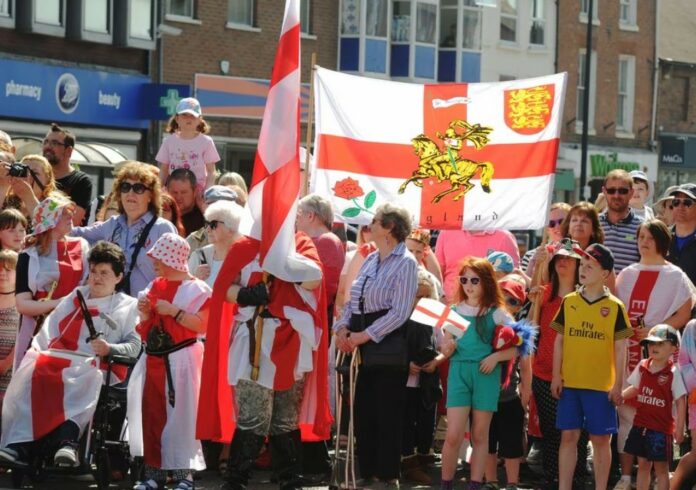St George’s Day is a national day of celebration in England, commemorating the country’s patron saint, St George. Held on April 23rd every year, this day honors the legendary hero and his inspiring tale of bravery and chivalry. Despite not being an official public holiday, St George’s Day has been celebrated for centuries, with various customs and traditions surrounding the occasion. In this article, we delve into the origins of St George’s Day, its significance, and how it is celebrated across the nation.
The Origins of St George’s Day
St George, England’s patron saint, is best known for his legendary battle with a dragon, symbolizing the triumph of good over evil. Although St George was not English by birth—he was born in Cappadocia (modern-day Turkey) around AD 280—he became a symbol of national pride and unity in England during the Middle Ages.
As a Roman soldier, George protested against the persecution of Christians under Emperor Diocletian’s rule. He was subsequently imprisoned, tortured, and beheaded on April 23, 303, making this date his feast day. St George’s Day was officially recognized in England in the 13th century when he was named the nation’s patron saint by King Edward III.
St George and the Dragon
The most famous story associated with St George is that of his legendary battle with a dragon. According to the legend, a town was terrorized by a ferocious dragon that demanded a daily sacrifice of a young maiden. When the king’s daughter was chosen as the next offering, St George intervened. Riding a white horse and wielding a lance, he injured the dragon and captured it. He then dragged the creature back to the town and killed it, saving the princess and the townspeople.
This tale of heroism and valor became an enduring symbol of English courage and chivalry, and St George’s cross—a red cross on a white background—became the country’s national emblem.
Traditions and Celebrations
Although St George’s Day is not a public holiday, it is still celebrated across England. Traditional festivities include:
- Parades and Pageants: Many towns and cities host parades featuring people dressed as St George, the dragon, and other characters from the legend. Pageants often reenact the story of St George and the dragon, providing entertainment and a sense of national pride.
- Flag Flying: The St George’s Cross flag is flown from buildings, homes, and public spaces to commemorate the day. It is also common to see the flag displayed on clothing, accessories, and decorations.
- Church Services: Special services are held in churches to honor St George and his contributions to Christianity. Some communities also hold processions, followed by a church service.
- Feasting and Merrymaking: Traditional English foods, such as roast beef and Yorkshire pudding, are often enjoyed on St George’s Day. Pubs across the nation may host special events, including themed menus and live music, to celebrate the occasion.
- Charitable Acts: St George’s Day is often used as an opportunity to support charities and engage in acts of kindness, inspired by the values of courage and selflessness that St George represents.
Conclusion
St George’s Day is a time-honored tradition in England, celebrating the life and legend of the nation’s patron saint. Although not a public holiday, the day is marked by various customs and festivities that uphold the values of courage, chivalry, and unity.


